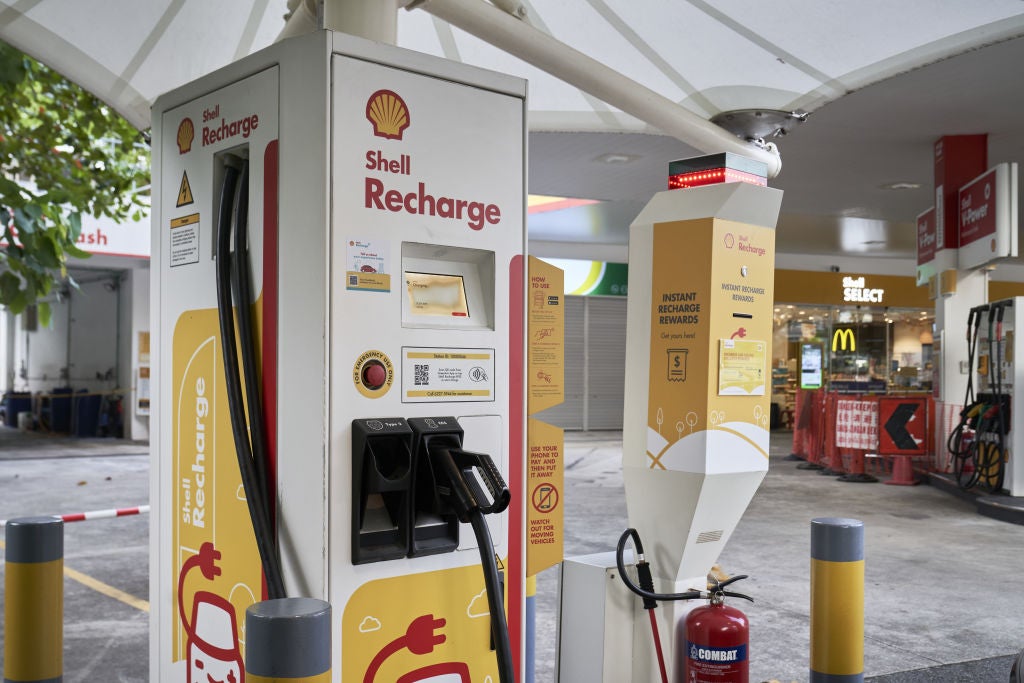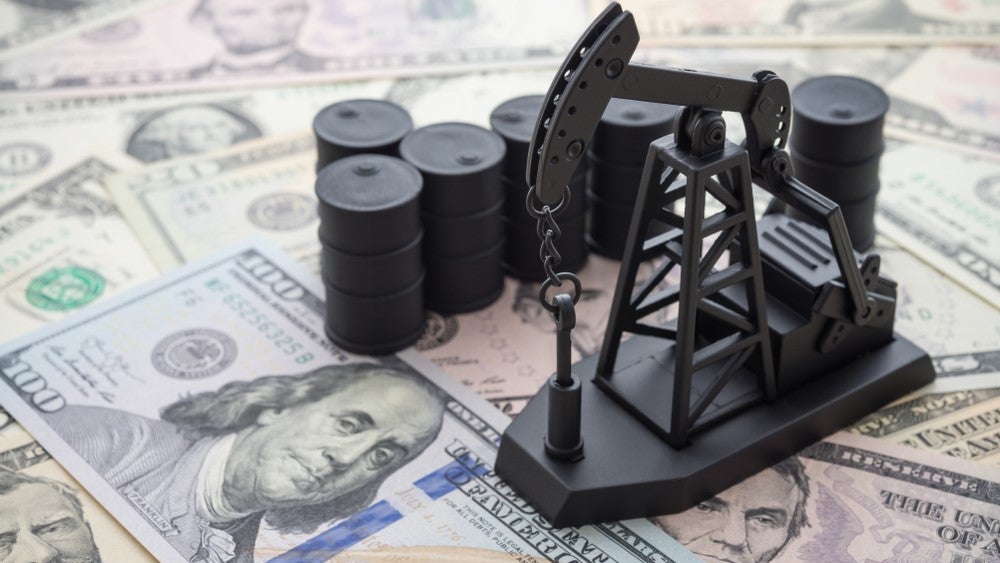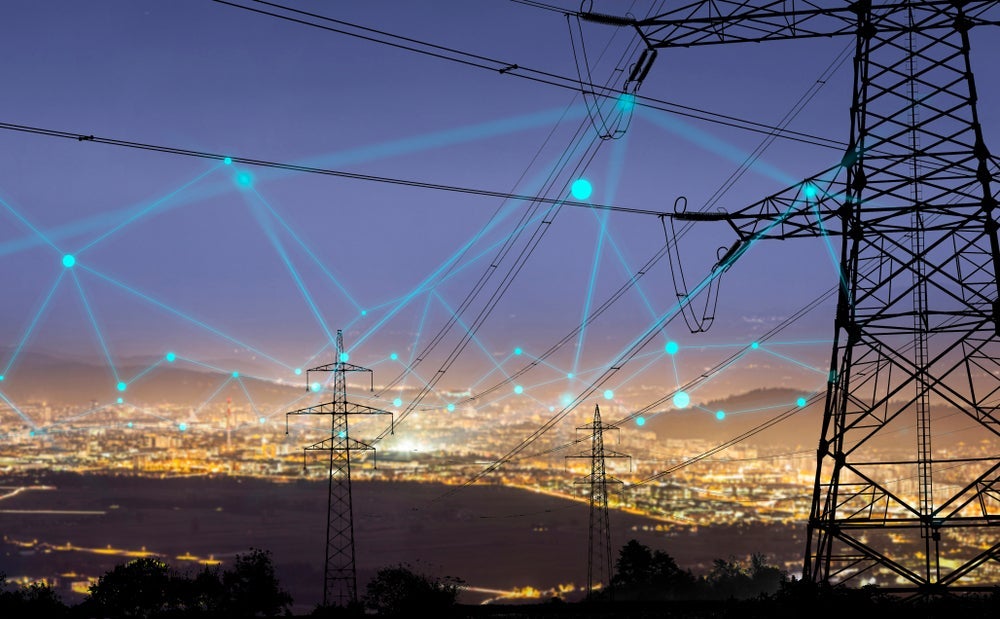
In June, British oil major Shell had a series of adverts banned by the Advertising Standards Authority (ASA) due to ‘greenwashing’. The ads allegedly misled the public into thinking that the company’s investments in EV charging infrastructure and clean electricity for homes comprise a significant portion of its business, while in reality, the vast majority of its revenue comes from oil and gas.
There is undoubtedly irony in Shell purporting to be a global clean energy leader, given it is not only Britain’s largest oil and gas extractor, but also one of the top 25 companies set to blow the world’s remaining carbon budget for 1.5°C, according to an exclusive Energy Monitor analysis earlier this year.
Yet Shell, along with a handful of other oil majors, does have cause to tout its investments in EV chargers. According to data from UK EV charging point locator zapmap, Shell is the single largest operator of EV charging networks across the UK through its subsidiary ubitricity, one of Europe’s largest on-street electric car-charging companies.
Shell purchased ubitricity in 2021 as part of a drive to shift its reputation – and business – away from oil and gas, and towards a cleaner future. The acquisition followed the 2019 purchase of EV charging solutions company Greenlots. Earlier this year, Shell also bought EV charging company Volta for $169m (£137,911m) in cash.
BP, Shell’s rival British oil major, is also investing in EV chargers. In 2018, BP purchased EV charging network Chargemaster – at the time the UK’s largest EV charging network and now known as BP Pulse – with 3,584 charge points across the UK, the third-largest provider according to zapmap.
See Also:
Light EVs are expected to account for more than 40% of new car sales worldwide by 2036, according to Energy Monitor’s parent company GlobalData. Major economies including the US and EU are setting targets and standards to promote EVs and phase out diesel engines.
How well do you really know your competitors?
Access the most comprehensive Company Profiles on the market, powered by GlobalData. Save hours of research. Gain competitive edge.

Thank you!
Your download email will arrive shortly
Not ready to buy yet? Download a free sample
We are confident about the unique quality of our Company Profiles. However, we want you to make the most beneficial decision for your business, so we offer a free sample that you can download by submitting the below form
By GlobalDataGiven the monumental transition to electric, oil and gas companies are increasing their participation in the EV market, reports GlobalData: “[They are] investing across the value chain from equipment manufacturing to network operations, fast charging solutions and charging points installations to secure a spot in this growing market and provide services that improve the operation of the entire EV ecosystem."
GlobalData tracks self-reported EV charging points owned by oil majors, and future targets. Market-leader Shell, for example, states that it owns 140,000 public and private EV charging points globally, and has set a target of reaching half a million charging points by 2025, predominantly in Europe.
TotalEnergies, according to its most recent reports, owns around 36,500 charging points globally and has a target of reaching 150,000 by 2025, mainly across France, Germany, the UK, Netherlands and Belgium. Mitsui and Co, through its subsidiary EV Connect, now has 126,000 charging points in operation globally, while BP has 22,000 and is aiming for 100,000 by 2030.
Other oil and gas majors encroaching on the space include Eni, which has 13,000 operational charging points through its subsidiary plenitude and is aiming for 30,000 by 2026; Repsol, which has 2,000 charging points; and OMV, which owns just 349.
Tesla is still king
Despite oil majors’ flurry of investment in the EV charging space, just two oil majors – BP and TotalEnergies – make it into the top ten operators of EV charging points in Europe by capacity, according to a 2023 EV charging infrastructure outlook by the renewable energy start-up Gridx.
Gridx’s data shows that Elon Musk’s flagship tech company Tesla dominates the European market, with 2,070MW of charge points, or a 13.1% market share. Aral Pulse – owned by BP – is in eighth place, with a 1.8% market share, while TotalEnergies is in tenth place, with a 1.5% market share.
The picture changes somewhat when ranking companies for the total number of charge points, rather than capacity, with BP’s Aral Pulse and TotalEnergies no longer making the top ten. While Tesla still takes the top spot, with 19,807 charge points across Europe, it only holds a 4.1% market share of total charging points.
“Beginning around 5–10 years ago [oil majors] made just small investments, to see if EVs could play a part in their business, but once they started to see EVs were really gaining popularity, especially in Europe – where most of the charging stations from these companies are located – it started to become a really important part of their business,” says Barbara Monterrubio, an energy analyst at GlobalData. “Some, if not most of these companies already have a specific subsidiary in charge of the EV parts, electrical parts, or even battery developments.” Shell and BP now have “major, independent subsidiaries” in the EV charging business, she adds.
GlobalData’s data shows that while oil and gas majors are most active in the EV charging space (unsurprising, given their existing ownership of traditional service stations) a number of them are also investing in other parts of the EV value chain. After charging points, the most popular area of EV investment for oil majors is batteries, followed by hydrogen refuelling, finds GlobalData. Just two oil majors in its assessments – TotalEnergies and Mitsui – have some investments across the entire EV value chain, which also includes electric public transportation.
Maintaining perspective
Despite their investments in the EV charging space, BP and Shell have given somewhat mixed messages when it comes to their transition to clean energy. Following the publication of their Q1 2023 results in February, both companies signalled to the market that they are unlikely to pivot away from oil and gas any time soon.
Despite pledging to increase annual spending on renewables and low-carbon energy by $1bn, following its results BP announced that it was scaling back its oil and gas reduction target from 35–40% by 2030 to 20–30% within the same time frame.
According to analysis by the Common Wealth think tank, Shell spent $3.5bn on low-carbon investments in 2022, compared with $19bn on other investments, while BP spent $1.02bn, compared with $15bn on other investments – mainly fossil fuels. Neither company breaks down exactly how much it is spending on EV charging networks in particular, although Shell intends to ramp up its overall low-carbon energy spend – biofuels, hydrogen, EV charging and carbon capture and storage – to $10–15bn between 2023 and 2025.
Shell CEO Wael Sawan told CNBC in June this year he sees “very robust” demand for oil and gas in the short and medium term, and remains “committed to our oil and gas businesses for a long time to come”, but also that he is “leaning further heavily into” building charging stations for EVs, especially in Asia”.
“In China, we are seeing our EV charging customers come in twice as much as our internal combustion engine customers,” Sawan said.







